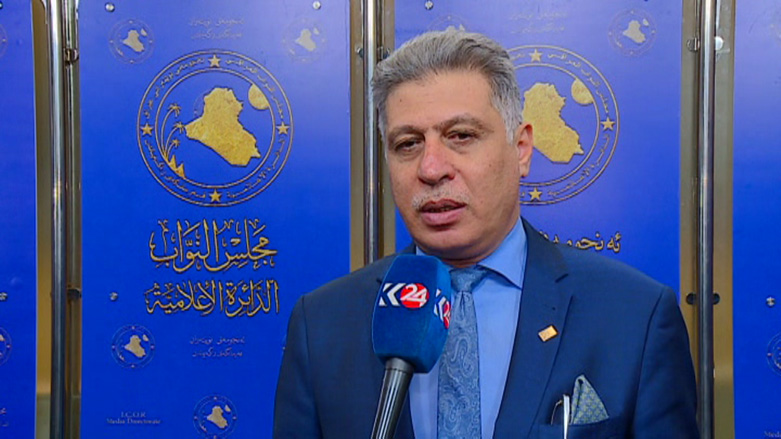ISIS executed persons recently abducted in Iraq's rural Diyala: MP

ERBIL (Kurdistan 24) – An Iraqi lawmaker claimed on Saturday that an unspecified number among a group of seven people, whom members of the so-called Islamic State had abducted, had been executed.
The kidnapping occurred on Thursday when a sleeper cell of the terrorist organization set up a mock security checkpoint on a road connecting two towns in and near the Kurdistan Region’s southern Garmiyan area.
Gunmen stopped multiple civilian vehicles and directed fire at passing cars, according to a source who spoke to Kurdistan 24. They then kidnaped seven individuals, two of whom are from the disputed city of Khanaqin in Diyala province, about 40 kilometers from the location of the incident. The rest are reportedly from Qara Tapa.
Read More: ISIS kidnaps 7 civilians at fake checkpoint in Kurdistan’s Garmiyan region
The leader of the Iraqi Turkmen Front and the head of the Parliamentary Human Rights Commission, Arshad al-Salihi, made the announcement in a statement, according to which many of the abductees are members of the Turkmen ethnic group.
“This hideous terrorist operation is evidence that Da’esh [ISIS] terrorist gangs are sending dangerous messages that they are still active in those areas.”
“This cowardly act is nothing but a clear indication of the persistence of terrorist crimes against the Turkmen,” Salhi continued, reiterating his assurances that there is a security vacuum area in which the federal forces do not exist.
The Islamic State has routinely held captives from rural areas for ransom, often killing them even after family members had followed their demands for large amounts of money. They have also carried out hundreds of bombings in different parts of the country as they continue to wage an insurgency following their territorial collapse in Iraq in December 2017.
Editing by Karzan Sulaivany
